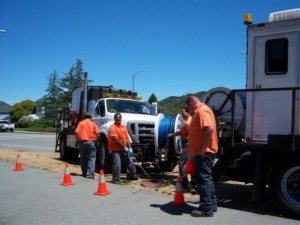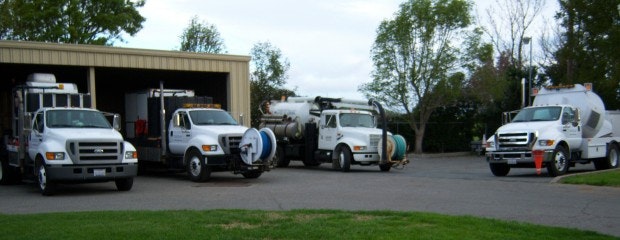Collection System
How To Properly Dispose of Fats, Oils and Grease (FOG)

Fats, cooking oils, and grease (FOG) can coat and clog pipes and cause sewer lines to back up into homes. That can mean costly clean-up and repair costs. FOG also causes blockages farther down sewer lines which can result in overflows or sewage backups into yards or streets–creating public health and environmental risks–and potentially hefty fines which increase sewage disposal and treatment costs, overall.
FOG making its way to wastewater treatment plants can disrupt treatment processes and add to the need for maintenance. To prevent these problems, LGVSD encourages you to dispose of leftover FOG properly—never down the drain!
Following these simple tips can help to avoid clogged drains and sewer overflows.
- Keep your sink Fat-Free! If you’re soaking a greasy pan, first pour off grease into a container. Wipe the remaining grease out of the pan with towels. Then place paper towels over the drain basket to catch grease and food as you pour the soaking water down the drain.
- If you live in the area of Marin Sanitary’s curbside compost pilot program (Mt. Lassen, Westgate, Idylberry) with weekly green waste pickup, the best method to dispose of grease, food scraps, sauces, gravy and similar leftovers is to Recycle! Simply include grease in your compost container or a brown paper bag. If you’re unsure, contact Marin Sanitary at 415-456-2601.
- If recycling is not possible, sealed containers of grease should be disposed of in the trash. Large amounts of cooking oils, such as deep fat fryers generate, can be mixed with absorbent material such as coffee grounds or kitty litter for easier disposal in the trash.
Never put fats, oil, grease or greasy food down the garbage disposal or drain.

